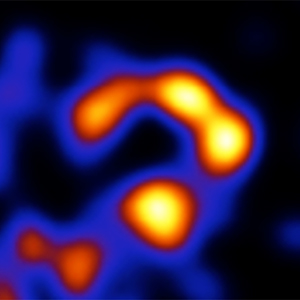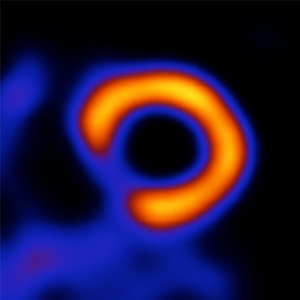Electrical and computer engineering professors Miles Wernick and Yongyi Yang landed $6 million in National Institutes of Health grants for their research using artificial intelligence to find health abnormalities in medical imaging scans taken with lower radiation doses, which allow patients to get life-saving care through safer procedures.

1
TA scan of the cross section of a heart ventricle. A healthy heart would show a nice, complete ring. This scan looks blobby mostly because of “noise”—an outcome of the physics of the imaging process—which is present because the image was taken using a radiation dose that is reduced eight times compared to what would typically be used.

2
The same scan after image processing using Wernick and Yang’s artificial intelligence method. The processing has identified and removed the noise, revealing a ventricle with coronary artery disease, as shown by the incomplete ring.
Photos: Miles Wernick and Yongyi Yang